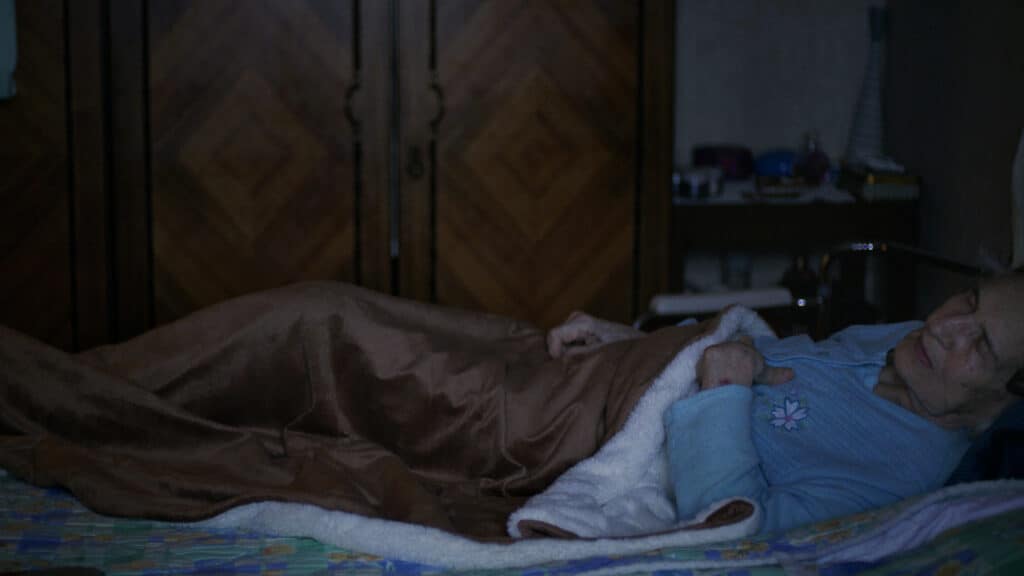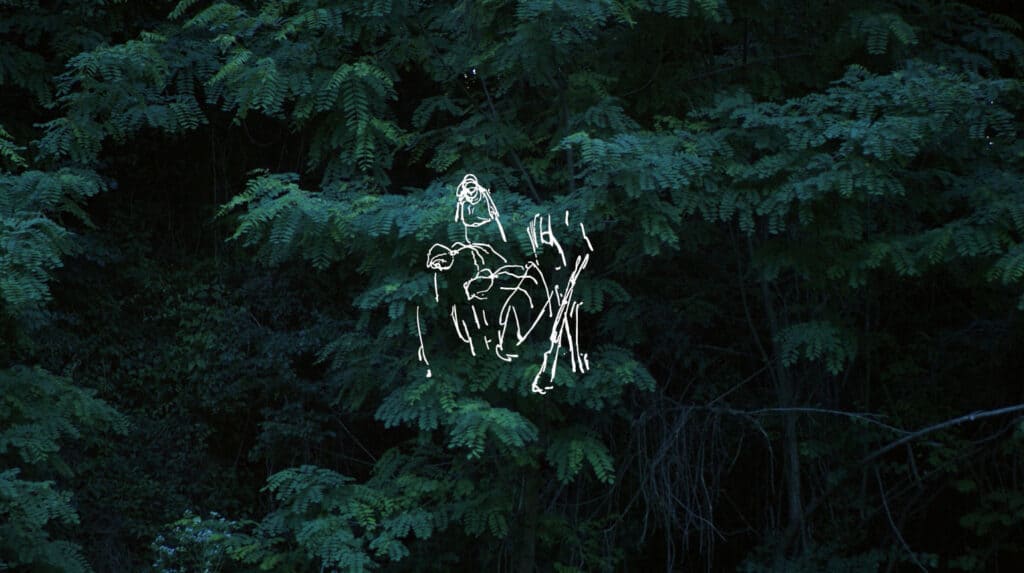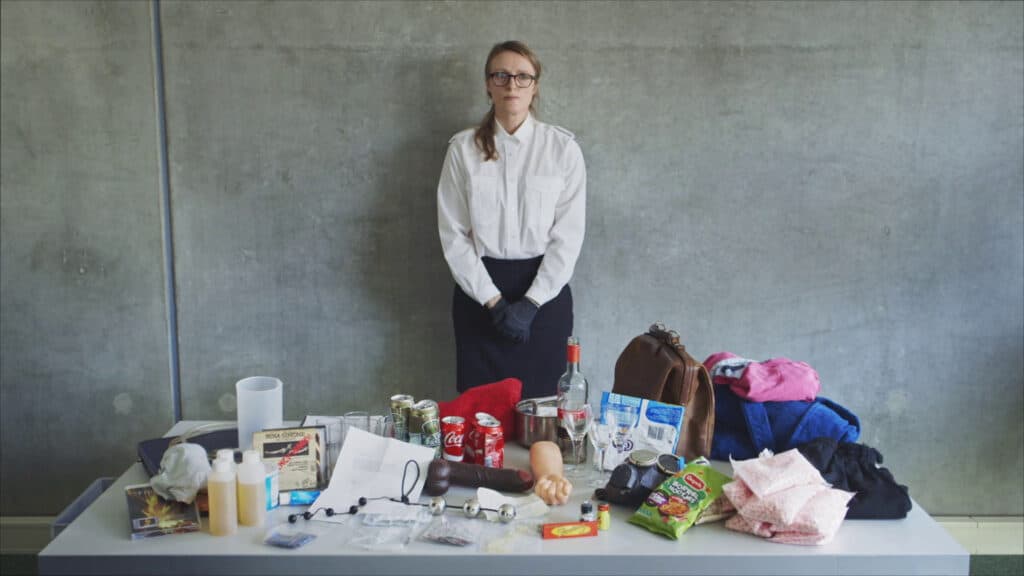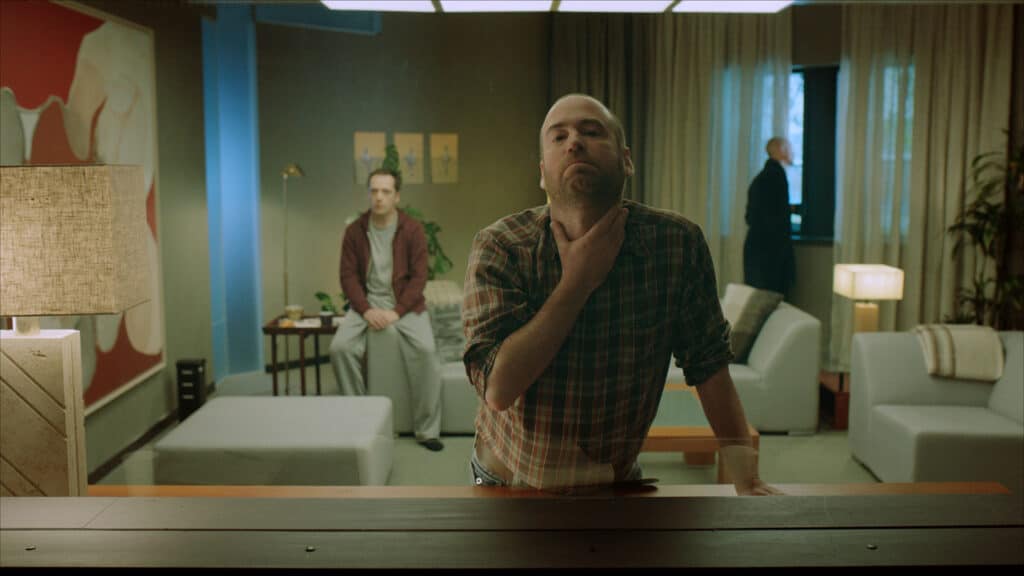Landscapes of Resistance
2021 marks the 50th anniversary of the Rotterdam Film Festival (IFFR). It is also the first edition being conducted online and, incidentally, the first time when I attend the festival. My IFFR began with Landscapes of Resistance (Pejzaži otpora) by Marta Popivoda. It’s a documentary about Sonja, one of the first female partisans in Serbia who later helped lead the Resistance movement in Auschwitz. Her granddaughter, Anja Vujanovic, wrote the script, and we see Sonja a few times, but mostly, her stories are told by herself, voice-off. The camera concentrates on the locations where the events she went through took place or might have taken place. The stories are quite gruesome and involve torture and other atrocities
Dalla Nuba Alla Resistenza1 The Straub/Huillet film from 1979
The title is the same as Barton Byg’s book about Straub/Huillet. The film’s theme is similar to some of their works, namely the comparisons of past and present and the question of how much has actually changed. One example is Not Reconciled (NIcht Versöhnt 1965). The style of the film owes more to Claude Lanzmann’s monumental Shoah (1985). It’s filled with stunning images and transitions that make the past feel like it’s just behind the surface. It’s an extremely effective way to evoke Sonja’s memories and makes them virtually palpable. The stories she has to tell are truly riveting and horrifying. Popivoda’s creation is worth seeing on that merit alone. However, her purpose extends way beyond that point.
One of the director’s main goals seems to be to juxtapose Sonja’s experiences with things that occur now and, in the process, make points about what she labels as fascism today. She calls the film “partisan” and claims that it’s what cinema should be today. She is certainly not alone in making that comparison, but in my mind, it’s a stretch. Not in the sense that there are no serious political and democratic problems in Europe today, but it’s still not without risks drawing comparisons to some of the most hideous acts of the 20th century. Since that seems to be Popivoda’s and the screenwriter’s major point of the film, it falls short in that regard. Still a recommended watch.
Feast
Tim Leyendekker is a director from the Netherlands whose previous film, Blinder, was nominated for a Tiger Shorts award in 2015. His feature Feast played at this year’s edition. It’s based on a case in Groningen, where three men drugged other men and infected them with their own HIV-contaminated blood. The opening sequence sets the tone, where a police officer presents the objects found, with a neutral voice, whether it’s George Michael CDs, anal beads or porn videos. If this sequence reels you in, as it did with me, that doesn’t mean that everything will look like that. The film is divided into seven segments, and each has a different cinematographer and the differences between the parts don’t end there.
The second segment shows the three men at the centre of the case, debating the possibility of pure love and transcendence. There is an extra meta-layer added that I won’t mention here. Later, we meet one of the men in his home, where he talks about his crimes in a candid fashion. In yet another chapter, we meet a botanist who injects tulips with a virus and talks about the flowers’ reaction. She stresses that there can be a symbiotic relationship between the virus and its host and that there are no “bad guys”. Each section ends with a variation of an image. And then I haven’t even mentioned the pivotal role that Platon’s Symposium plays in the film.
“Chapter” might be a more accurate description of the parts since there is a literary quality to the film. The script was written by the director with author Gerardjan Rijnders. Leyendekker has been a fan of him for a long time, and now they seized the opportunity to work together. One of the qualities he points out is Rjinders’ ability to sample things that seemingly don’t fit together. One example is a classical Greek text with contemporary protocols that creates a new synthesis in his hands. His dialogue is particularly compelling during the aforementioned second segment and in one of the later sequences that depict an interrogation.
The director doesn’t pull any punches, and this is a work that might trigger angry responses from some spectators. Without compromises or excuses, the director dives deep down into the psyches of the men involved. Are culprits and victims actually interchangeable, as one of the perpetrators seems to claim? Are the question of consent as simple as recent discussions seem to indicate? The film deals with several topics but doesn’t provide any clear-cut answers. In my mind, Leyendekker has chosen a fresh approach to the case, and the film is a force of nature, as well as a cinematic tour de force. Feast was screened in the Tiger competition, as was Landscapes of Resistance.





